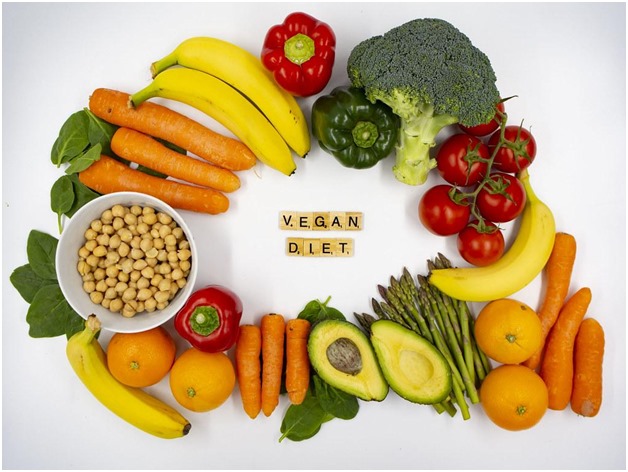
In recent years, there has been a significant shift towards plant-based diets, with more people recognizing the numerous health benefits of incorporating vegan foods into their meals. From lowering the risk of chronic diseases to promoting overall well-being, the advantages of adopting a plant-based diet are backed by an extensive body of research. In this article, we’ll explore the various health benefits of embracing vegan foods and how they can contribute to a healthier lifestyle.
Understanding Veganism and Plant-Based Diets
Veganism is a lifestyle and dietary choice that excludes all animal products, including meat, dairy, eggs, and honey. A plant-based diet, on the other hand, focuses on consuming primarily plant-derived foods while minimizing or eliminating animal products. Both approaches prioritize fruits, vegetables, grains, legumes, nuts, and seeds, offering a wide array of nutrient-rich options for individuals looking to improve their health through diet.
Nutritional Benefits of Vegan Foods
One of the primary health benefits of incorporating more vegan foods into your diet is the abundance of essential nutrients they provide. Plant-based foods are rich in vitamins, minerals, antioxidants, and phytonutrients, which are vital for maintaining optimal health. Fruits and vegetables, in particular, are excellent sources of vitamins A, C, and K, as well as fiber, potassium, and folate. Additionally, plant-based proteins such as beans, lentils, tofu, and tempeh offer a complete amino acid profile without the saturated fat and cholesterol found in animal products.
Reduced Risk of Chronic Diseases
Numerous studies have linked plant-based diets to a reduced risk of chronic diseases, including heart disease, type 2 diabetes, and certain types of cancer. By prioritizing whole, nutrient-dense foods and minimizing or eliminating processed and animal-derived products, individuals can lower their cholesterol levels, blood pressure, and inflammation, all of which contribute to improved cardiovascular health. Additionally, the high fiber content of vegan foods supports digestive health and helps regulate blood sugar levels, reducing the risk of insulin resistance and diabetes.
Weight Management and Improved Body Composition
Another significant benefit of adopting a plant-based diet is its potential for weight management and improved body composition. Plant-based foods are typically lower in calories and saturated fat than animal products, making them ideal for individuals looking to lose or maintain weight. Additionally, the high fiber content of vegan foods promotes feelings of fullness and satiety, reducing overall calorie intake and preventing overeating. Studies have shown that individuals following plant-based diets tend to have lower body mass indexes (BMIs) and a lower risk of obesity compared to those consuming omnivorous diets.
Promotion of Gut Health
The gut microbiome plays a crucial role in digestive health, immunity, and overall well-being. Plant-based diets rich in fiber nourish beneficial gut bacteria, promoting a diverse and balanced microbiota. This, in turn, supports healthy digestion, reduces inflammation, and strengthens the immune system. By consuming a variety of fruits, vegetables, whole grains, and legumes, individuals can optimize their gut health and reduce the risk of gastrointestinal disorders such as irritable bowel syndrome (IBS), Crohn’s disease, and ulcerative colitis.
Supporting Sustainable Agriculture and Environmental Conservation
In addition to the personal health benefits, adopting a plant-based diet can have positive implications for the environment and global sustainability. Animal agriculture is a significant contributor to deforestation, greenhouse gas emissions, water pollution, and habitat destruction. By reducing or eliminating animal products from their diets, individuals can reduce their carbon footprint and contribute to the conservation of natural resources. Plant-based diets require fewer land, water, and energy resources than conventional meat-based diets, making them more environmentally sustainable in the long term.
Vegetarian and vegan options at GC
Golden Corral, a popular buffet-style restaurant, question: Are there any vegetarian or vegan options at Golden Corral? So GC offers a variety of dishes to cater to different dietary preferences, including vegetarian and vegan options. While the restaurant does not have a dedicated vegetarian or vegan menu, they typically offer a selection of salads, steamed vegetables, grains, and fruit options that are suitable for plant-based eaters. Additionally, patrons can customize their meals by selecting vegan-friendly ingredients and avoiding dishes that contain animal products. It’s always a good idea to communicate with restaurant staff and inquire about specific menu items to ensure they meet your dietary requirements.
Conclusion
Incorporating more vegan foods into your diet can have numerous health benefits, ranging from improved nutrient intake and reduced risk of chronic diseases to support for sustainable agriculture and environmental conservation. By prioritizing plant-based options and minimizing or eliminating animal products, individuals can optimize their health, enhance their well-being, and contribute to a more sustainable future for themselves and the planet. Whether you’re looking to improve your health, protect the environment, or explore new culinary adventures, embracing vegan foods is a delicious and rewarding journey worth undertaking.